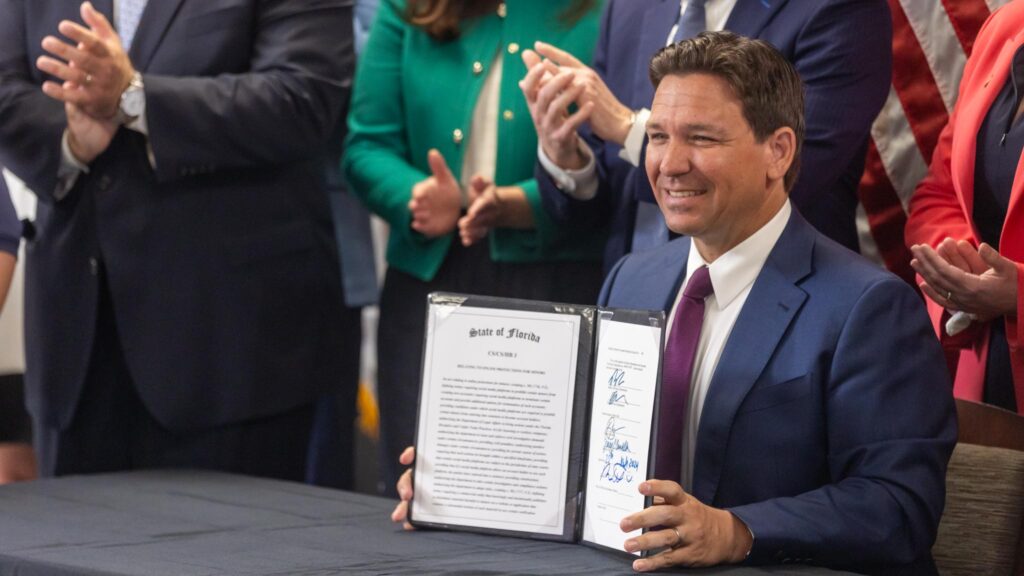
A new Florida law banning minors 14 and younger from social media takes effect on Jan. 1. Governor Ron DeSantis signed HB 3 in March, hoping the new law will keep minors mentally and physically safe online.
Following the bill’s signing, House Speaker Paul Renner spoke at a news conference about the new legislation.
“More crimes against children happen on these platforms than any other venue. We know that. We also know that social media platforms have caused a devastating effect on the mental well-being of our children,” Renner said.
HB 3 requires that social networking sites cooperate with law enforcement to ensure users comply with the law. The sites will monitor user activity, and if a user posts inappropriate content targeted toward minors, the authorities must be alerted.
The bill also mandates that social media platforms use age verification and implement a content moderation plan that ensures minors are safe from explicit online posts.
The law requires social media platforms to remove accounts of users who are 14 and younger. Minors aged 14 or 15 can keep their accounts with consent from a parent or guardian.
HB 3 does not list affected social media platforms in the bill. Instead, the affected platforms must meet a set of criteria. The law applies to social media websites that monitor users’ daily activity, have addictive features and have algorithms that personalize content selected for users. Websites that break the law violate the Florida Deceptive and Unfair Trade Practices Act and can be penalized by the Department of Legal Affairs for up to $50,000.
The new law has alleviated worries among concerned parents like Kimberly Jenkins. “I think social media can sometimes diminish a child’s creativity. They start following trends that are unhealthy and unrealistic, modeling who they are from someone else,” Jenkins said. Jenkins believes the new law can only be effective when coupled with involved parenting.
“I think children should be taught who they are at home. Parents should confirm and affirm their children daily. When you constantly remind a child of who they truly are, it will lessen anxiety and depression,” Jenkins said.
Clori Orick is a minor with a social media account with her parents’ permission. She believes using apps like TikTok and Instagram is important for preteens to stay connected. “I use social media every day, and I feel like social media is a part of our lives in this generation,” Orick said.
Once minors turn 16, they can have a social media account without permission from their parents, according to Florida law. Florida lawmakers believe that at age 16 teens will be more adept at keeping themselves safe online.







